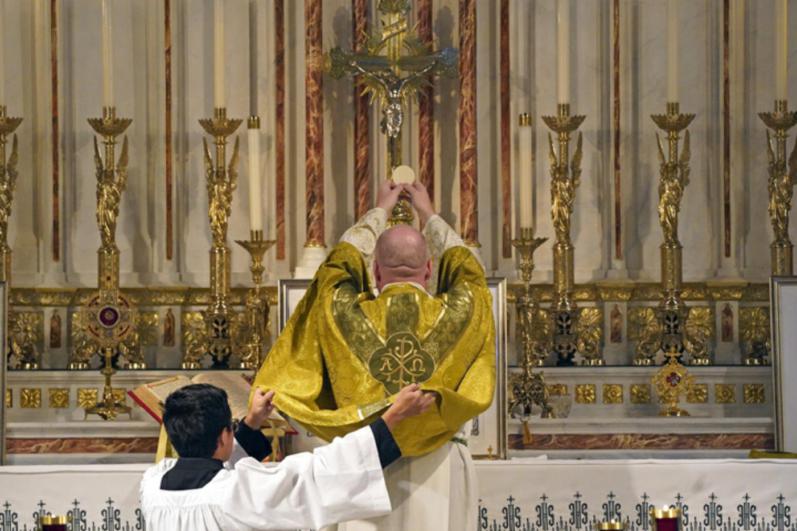Liturgy wars
Considering the circumstances, I probably should begin this with a personal statement: I am not an aficionado of the Old Mass, otherwise known as the Latin Mass or the Tridentine Mass. In fact, it's been more than a few years since I even heard a Mass in Latin. The New Mass -- post-Vatican II in form and celebrated in English -- suits me just fine.
That said, for my money, the most positive reactions to the new directives from Pope Francis placing sharp restrictions on the Old Mass have been the statements by a goodly number of bishops saying previous permissions for celebrating the Old Mass will remain in place until they've had time to study and reflect on the new word from Rome.
That's entirely as it should be. And if I may offer one rather obvious suggestion, it's that as study and reflection proceed, the bishops give priority to the pastoral needs of their people, without getting bogged down in somebody else's ideologically driven debate about centralization vs. decentralization in conducting the affairs of the Church.
In a word: put pastoral considerations first.
Here is an example from my own (admittedly limited) experience that illustrates why that's important.
Many years ago, I knew an unhappy Catholic woman who bore more than her fair share of the world's troubles on her frail shoulders. Even so, she found consolation and support in the Mass -- the pre-Vatican II Mass, celebrated in Latin in its traditional form.
Then came the ecumenical council and, after that, a burgeoning slew of liturgical changes -- English in the Mass, priest facing the people, communion rail gone, old hymns out and new -- whatever they were -- in their place. Not surprisingly, the woman was upset and angry that something important had been snatched away from her without so much as a by-your-leave. Registering protest in the only way she could, she stopped going to Mass. She died a few years later. Whether she had returned to the Mass by then I don't know. I hope so.
Sad story, you say, but a special case.
Yes, it was a special case. But the relevant fact in making pastoral decisions -- about the liturgy or anything else -- is that each and every one of us is a special case in the eyes of God. Pastoral policies that treat people as an undifferentiated herd, without making generous provision for individual needs, are gravely deficient.
In an interview with Catholic News Service, Archbishop Augustine DiNoia, OP, adjunct secretary of the Vatican's Congregation for the Doctrine of the Faith and an old friend, argued trenchantly that stringent limits on the Old Mass are warranted in view of a "movement within the Church" that "sows division" by undermining the liturgical reforms of Vatican II. It is particularly active, he said, in the United States, France, and England, aggressively pushing its message even -- or especially -- among young people.
I confess I'm not acquainted with that movement, but I'm sure Archbishop DiNoia knows whereof he speaks and the movement in question really does need to be opposed.
But that woman I spoke of wasn't part of any movement. She was simply a Mass-going Catholic who found the Holy Sacrifice in its old form a source of consolation in her otherwise difficult life and was cut to the quick when it was taken away from her. I hope the bishops and the folks in Rome will give serious consideration to people like her as they go about the work of reforming the reform of the reform.
- Russell Shaw is the author of more than twenty books. He is a consultor of the Pontifical Council for Social Communications and served as communications director for the U.S. Bishops.



















